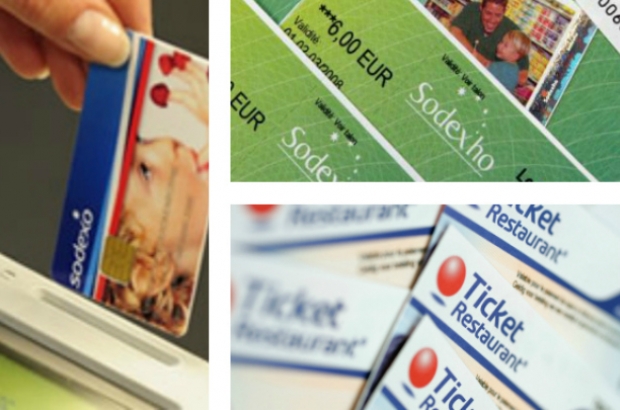- Daily & Weekly newsletters
- Buy & download The Bulletin
- Comment on our articles
Yummy money: meal tickets and lunch vouchers
Even if you don’t get lunch vouchers or meal tickets at work, you’ll have no doubt seen someone pay for their restaurant bill or their groceries with them, or with their electronic equivalent (since the beginning of this year, the paper version is slowly being replaced by a smart card which is topped up by your employer every month). They are part and parcel of everyday life for most Belgians, yet two MPs are working on a proposal to get rid of them, apparently with the backing of the minister for Economy. The latter argues that, every year, business and employers pay a total of €50m in admin costs related to meal tickets. But why do they exist, and what is the story behind them?
Not all companies can offer their employees access to a staff canteen. That is why meal tickets - known in these parts as cheques-repas, maaltijdchques, lunch-passes or tickets-restaurant - were introduced as early as 1965. By giving lunch vouchers to staff, companies effectively subsidise the cost of a meal. The employer buys lunch vouchers from one of the accredited companies (Edenred or Sodexo), and will pay a maximum of €5.91 per voucher. The employee’s contribution, meanwhile, is minimum €1.09 per voucher. In the case of a €6 meal ticket, for instance, this means that the employee still gets €4.91 net of tax and social security.
Employers discovered lunch vouchers could be a tax-efficient way of paying bonuses or supplementing salaries. And that’s why they are subject to a number of conditions. They must be available to all members of staff, either because there is a collective bargaining agreement or because they have been agreed individually with the employee. And when an employer grants them, he can’t reduce the salary or remove an existing bonus.
The vouchers must be issued in the name of the employee, who receives one lunch voucher per working day’s work. There can be only one lunch voucher per working day, even for a half day. The vouchers can only be used in restaurants, supermarkets and some grocery stores. By law, they are not allowed to return any change; instead, the employee must pay the difference in cash (this is extremely rarely implemented, however). Finally, lunch vouchers cannot be accepted by restaurants or shops after their use-by date (independently from the project to kill off meal tickets, parliament first has to ratify a measure extending their current validity period of three months to one year).
The food-only proviso is enforced much more widely than the no-change-given rule, although not everywhere. And some supermarkets choose to enforce one rule but not the other. Delhaize, for instance, won’t accept meal tickets for the payment of any non-food items (even for, say, a €1 box of toothpicks out of a total bill of €60) and will insist that you pay for all non-food items separately. Yet they will happily give you change back on your meal tickets. At Carrefour, meanwhile, there is a maximum-15-vouchers-per-transaction limit. Colruyt, perhaps unsurprisingly, are more easygoing and won’t make you pay for your toothpaste separately. If in doubt, give your preferred supermarket a call.
Some independent retailers – typically, night shops - will accept lunch vouchers for the purchase of mobile phone top-up cards, tobacco products and even international phone calls. This is totally illegal – but do not be surprised if you come across it.
Surprisingly, companies with staff canteens can also give lunch vouchers. In this case, they are considered fringe benefits and the employee must pay tax on them. There are exceptions: the employee does not use the canteen, the canteen charges the meals at cost, or the canteen subsidises the meals but takes the lunch voucher in payment. In these situations, the lunch vouchers remain tax-free and exempt from social security.
For the employer, the lunch vouchers are what is called ‘exempt social advantages’. These are advantages given to the staff, independently of their merit or the work done on the same footing as wedding or retirement presents, refreshments in the office, and the cost of a staff canteen.
These advantages are tax exempt for the employee, but they are not tax deductible for the employer. They carry a cost in corporate income tax. Apart from being exempt of social security, the interest for the employer is that it would cost him much more to pay the employer the same amount net.
Freelancers are excluded from the benefit of lunch vouchers, but even that is changing. As of 2007, self-employed individuals who have their own company can receive lunch vouchers, under the same conditions as employees.
And now, in typically surreal Belgian fashion, just as the electronic version of the meal tickets is being introduced, there is talk of lunch vouchers being scrapped completely. It would be sad to see them go; for many, the monthly stash (or electronic top-up) of lunch vouchers has become a ritual, something to save for a rainy day – or for the monthly big shop. But they do say there is no such thing as a free lunch.



















